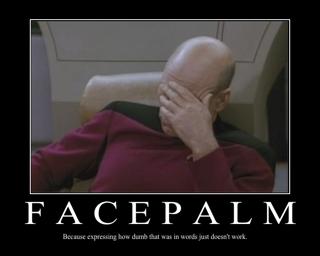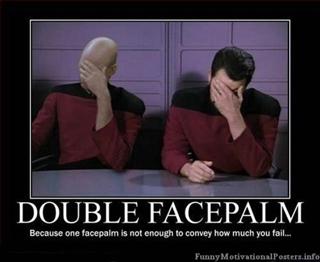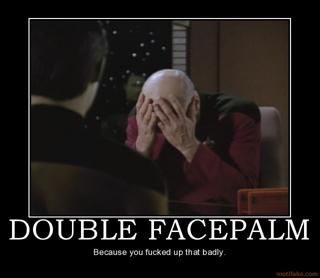Blizzard and the Terrible, Horrible, No Good, Very Bad DRM
You may have heard that there’s been a bit of a kerfuffle recently in response to some news about Diablo III. I’ll walk you through it - but first, we need to talk about Ubisoft.
On July 28, Ubisoft reported that they consider their constant connection DRM scheme to be a “success.” This despite the uproar and backlash caused by the scheme, the fact that it was immediately cracked, the clear demonstration of the system’s flaws when denial of service attacks locked out paying customers and left pirates unaffected, and Ubisoft’s eventual scaling back of the DRM to a once-per-run validation. Their reasoning?
“Speaking to us earlier today, a Ubisoft representative admitted that the developer has seen ‘a clear reduction in piracy of our titles which required a persistent online connection, and from that point of view the requirement is a success’."
—Owen Hill, Ubisoft: our DRM “is a success”

This is the sort of broken reasoning that comes about when you think of digital piracy as lost sales. Quite simply, piracy is not the same as physical theft. It creates a copy and doesn’t deprive the copyright owner of any resources, and is at worst an opportunity cost. By itself, the act of piracy has no effect on profits.
“Ubisoft is looking at a decrease in the number of pirated games as a success. But Ubisoft is a business, and a business exists to make money. Ubisoft makes money by selling video games. So a raw reduction in the number of free copies of their games floating around makes absolutely no difference to the company’s bottom line unless there’s a correlation between that and increased sales.
Yet by placing ridiculous restrictions on paying, loyal customers, Ubisoft surely dissuades people from buying its games. With piracy an issue that will never go away, isn’t that what the company should be worried about?"
—Luke Plunkett, Ubisoft Thinks its PC DRM is a “Success” (it is Wrong)
Ubisoft’s statement had no mention of an increase in sales. Just a decrease in piracy. This is a little like declaring your product to be a success because fewer people are buying from your competitor.
Except it’s worse than that. Because, other things being equal, the more people pirate from you, the better off you are. This may seem counterintuitive, but if you have enough courage to actually look at the evidence and update your beliefs to reflect reality, it’s pretty clear.
“Telepolis found that a recent study looking at pirates and their purchasing activities found them to be almost the complete opposite of the criminal parasites the entertainment industry want them to be. . . . [Movie pirates] purchase more DVDs than the average consumer, and they visit the movie theater more, especially for opening weekend releases which typically cost more to attend. . . . [They] are generally more interested in film and therefore spend more money and invest more time in it. In other words, they make up some of the movie industry’s best customers.
Unfortunately, we will never get to read the official version of the study as the unnamed client who paid for it to be created has decided it should not see a release. The reason given for shelving it was that the contents proved ‘unpleasant.'"
—Matthew Humphries, Movie industry buries report proving pirates are great consumers
“Several studies have shown that most artists actually profit from unauthorized sharing of files. They sell more albums because people have the opportunity to download songs and entire albums for free. A study by Blackburn (2004), a PhD student from Harvard, found that the 75% of the artists actually profit from piracy."
—Ernesto, Why Most Artists Profit from Piracy
“…comic book writer Steve Lieber has shared his experiences with book piracy, proving that it also has its benefits. Lieber noticed that scanned copies of his graphic novel Underground were posted on 4Chan, but instead of putting his sales to a halt, they skyrocketed. . . .
Bestselling author Paulo Coelho has previously shown that giving away free digital copies of books can actually boost sales to quite an extent. He claimed that this ‘piracy’ has led to millions of additional sales over the years."
—Ernesto, Piracy Can Boost Book Sales Tremendously
“Japanese animation, a.k.a. anime is big business in Japan, and the popularity has spread to Western shores increasingly ever since we got Akira. But as with the movie and music industries, anime publishers have been complaining that piracy is killing their business.
Not so, says the Japanese Research Institute of Economy, Trade and Industry (RIETI). This government department decided to do a study on the effects of piracy and YouTube uploads on the sale of anime. What they found was that sales were actually increased when these illegal and streaming options were available."
—Matthew Humphries, Anime piracy and streaming found to increase DVD sales in Japan
I hope the point is made by now. Piracy isn’t theft, it’s marketing.
I don’t think I need to say any more on this topic - it’s all been said. But if you want to read more, here are some links:
Turning Piracy Into Profit:
EA CEO: “I Think Of Pirates As A Marketplace”
Game Developer Promotes Game On Torrent Sites
How Viral PDFs Of A Naughty Bedtime Book Exploded The Old Publishing Model
Guy Asks For Software Crack, Creator Provides Free App Instead
How piracy works.
Is Piracy Good?
Opinion: Game Developers Should Love Their Pirates
The Gaiman Principle: “Piracy” is Advertising (and Why Ramen Music Encourages Sharing)
Why People Pirate:
It Was Never About The Money, Stupid
Geist: Canadian-backed report says music, movie, and software piracy is a market failure, not a legal one
Competing with free: anime site treats piracy as a market failure
Avast…
Don’t Attack Pirates By Hurting Customers:
Building a Better Kind of DRM
The Final Answer For What To Do To Prevent Piracy
Dear Record Labels — Focus on Buyers, Not Thieves
‘How do you stop piracy? Try giving hackers a job. And make better PC games.'
How to Handle Pirates (The Final Truth)
Good Old Games: DRM drives gamers to piracy
DRM run amok: how Bioware and EA are screwing users right now
Why Portal’s Publishers Don’t Fear Piracy, Competition
Now. It’s time to talk about Blizzard.
On August 1, just three days after Ubisoft’s claim of the “success” of always-online DRM, three pieces of news came out about Diablo III. One is that the game will feature a real-money auction house on which players can exchange their in-game goods. The second is that the game will completely disallow modding. There is certainly much worth saying about both of these things, but I’m going to leave them aside for the moment, and discuss the third piece of news: Diablo III will require a constant internet connection to be played.

Unlike Ubisoft, Blizzard isn’t calling it DRM, though senior producer Alex Mayberry did tell PC Gamer that preventing piracy was “one of” the reasons for this move. The main reason presented is to keep the multiplayer free of economy-ruining cheats and hacks, which is more important than ever now that real money is involved. Naturally, this raises a question - why not simply have an offline mode separate from the online experience, as in Diablo II?
“‘We thought about this quite a bit,’ says executive producer Rob Pardo. ‘One of the things that we felt was really import was that if you did play offline, if we allowed for that experience, you’d start a character, you’d get him all the way to level 20 or level 30 or level 40 or what have you, and then at that point you might decide to want to venture onto Battle.net. But you’d have to start a character from scratch, because there’d be no way for us to guarantee no cheats were involved, if we let you play on the client and then take that character online.'"
—Tom Francis, Diablo 3 cannot be played offline
This explanation is so ludicrous as to be insulting. Blizzard apparently thinks that a large portion of their user base is too stupid to create an online character if they think they might want to play it online, and that this portion is significant enough and the resultant experience negative enough to justify removing the ability to play offline for all users. That, or they think that we’re stupid enough to swallow this line.
“Their reasoning for the feature makes me more angry than the feature itself. . . . This boils down to, ‘Sometimes some people make bad choices so we have taken away the ability for anyone to make any choice.’ So, because some people wish they could take their single-player character online, nobody is ever allowed to play offline ever again? Apparently you are too stupid to make choices about how you want to play the game. As a bonus: The server will be mediating the game, so single-player Diablo III gamers will be able to experience the fun and excitement of lag death and disconnects.
And at this point in the conversation, everyone begins looking for ulterior motives: Oh, they don’t really care about the online / offline problem, they just want to kill second-hand sales. Or perhaps: This is just DRM disguised as a feature. Those are likely, although we can’t know their motives for sure. But no matter what their intent is, the policy / feature announcement is still offensive. It’s either a lie, an insult, or both."
—Shamus Young, Diablo III
On some level, Blizzard is aware that this is an inconvenience that limits people’s ability to enjoy the game. Executive producer Rob Pardo had a rather surprising soundbite on this subject:
“Diablo 3 will also require a persistent Internet connection, and Blizzard’s Rob Pardo agrees that it’s kind of a pain in the butt. ‘I want to play Diablo 3 on my laptop in a plane, but, well, there are other games to play for times like that,’ he told 1up.
Just so we’re clear, when you’re bored on a plane, and you have your laptop, and you want to play the game you bought in order to fight boredom, Blizzard’s official recommendation is that you play someone else’s game. That’s pride, right there."
—Ben Kuchera, Ars Guide: How to ruin your PC port in five easy steps
What do you suppose the public response would be to this kind of news, being handled in this way? Do you think that maybe people would be upset? If so, you are more prescient than Blizzard is claiming to be.
On August 4, three days after the Diablo III news broke, Blizzard’s reaction to the backlash was reported. According to Vice President of Online Technologies Robert Bridenbecker, they were surprised.
“I’m actually kind of surprised in terms of there even being a question in today’s age around online play and the requirement around that… We’ve been doing online gameplay for 15 years now…and with ‘World of WarCraft’ and our roots in Battle.net and now with ‘Diablo 3,’ it really is just the nature of how things are going, the nature of the industry."
—Robert Bridenbecker, as quoted in Blizzard VP ‘Surprised’ Over Fan Reaction To ‘Diablo 3’ Online Requirements
As with the stated reasoning behind the online-only decision in the first place, there’s no good way to take this. Either it’s a lie, or Blizzard is dangerously out of touch. It’s disappointingly common for developers to talk as though everyone has constant, perfect connectivity, despite the fact that we just don’t live in that world yet. But Blizzard in particular should know that their customers don’t like being tied down to an internet service - or have they already forgotten the last backlash, when they put out StarCraft 2 without LAN support, allowing multiplayer only over the Blizzard-controlled Battle.net?
Personally, I’m inclined to think it’s a lie. Blizzard is smart and they understand how gamers think - there’s no way they’d be able to consistently create such great games otherwise. They’re too smart not to know that this move would upset people, even if they somehow totally missed the Ubisoft debacle and completely forgot about the brouhaha over the less restrictive move with StarCraft 2, which still had offline singleplayer. Blizzard is also too smart not to realize that requiring a constant connection would be seen as DRM, though Bridenbecker claims this was not a part of the decision.
“Internally I don’t think [DRM] ever actually came up when we talked about how we want connections to operate. Things that came up were always around the feature-set, the sanctity of the actual game systems like your characters. You’re guaranteeing that there are no hacks, no dupes. All of these things were points of discussion, but the whole copy protection, piracy thing, that’s not really entering into why we want to do it."
—Robert Bridenbecker, as quoted in Blizzard VP ‘Surprised’ Over Fan Reaction To ‘Diablo 3’ Online Requirements
Except, oh wait, Alex Mayberry already said that piracy was “one of” the reasons for the decision.

There’s a common thread in a lot of the articles I’m reading about this suggesting that people will piss and moan about Blizzard’s decisions, but when the game comes out they will snap it up anyway. Blizzard is such a dominant company, and Diablo such a strong franchise, that people will buy it no matter what. Blizzard is unassailable. You know, kind of like how MySpace was.
For my part?

So long, Blizzard. We had a good run.